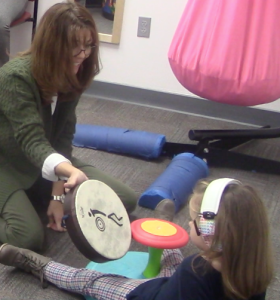Back Mountain Music Therapy, The Heyward Rooms LLC can help with:
- Increasing your ability to attend
- ADHD issues
- ADD issues
- Knowing when to focus on the small detail or when to focus on the bigger picture
- Filtering out unimportant information
- Increasing the ability to concentrate on 1 activity at a time
- The ability to hold onto a thought long enough to get to the next step
- The ability to sustain attention.
- The ability to persist at a task without wandering to something new.

The art of making music together, conversating, relating in a rhythmic, tonal, affective manner are the ingredients to relating. Development happens in relationship, sometimes, due to factors beyond our control, biological, accidental, traumatic experience, that development occurs, but with it growth around these factors, but including their nuances, making the issues stated above part of how we relate, interact and perceive the world. Back Mountain Music Therapy, The Heyward Rooms LLC works with individual preferences, individual differences, and timing in that developmental relating.
Take “Mary” for example:
Mary attends well when the music is fast and loud. As the music slows up, she falls out of the relationship, dysregulating, wandering and losing focus. The therapist will then get in a good groove at Mary’s preferred tempo (high speed) until Mary is very involved again, moving to the music, smiling at the therapist, and beating the drum as is her mode of participation. The therapist will have to observe Mary’s responses and alter her own response, in order to accommodate Mary’s individual preferences and fluctuating differences, which will pull Mary into the play interaction and relationship.
Increasing Focus – Sensory Processing Issues
As Mary remains thoroughly involved and internally motivated, the therapist will then begin to very subtly slow the tempo bit by bit making sure that the interactions are already very intrinsically motivating to Mary. This is important for Mary so that her brain learns to accommodate and tolerate changing conditions. If not, Mary will only be able to interact under very narrow conditions. For now, If Mary falls out of the relationship and begins to lose attention due to dysregulating with slower tempos, when the therapist begins to slow, the therapist will recreate the tempo and dynamics that pull her back in the play. The therapist will give Mary the time that she needs to get fully involved and then once again try at slowing the tempo gradually, keeping patience and persistence with individual differences and preferences in mind.

